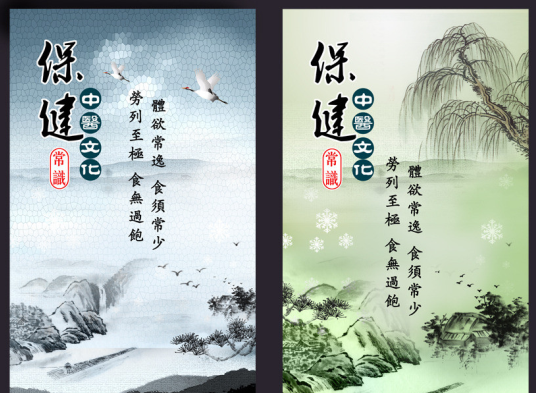1. Endogenous pathogenic factors
Most internal diseases are caused by endogenous pathogenic factors. Emotional damages may cause depressive syndrome, mania-depressive syndrome, wind stroke, vertigo and goiter. Overstrain may cause edema, diabetes, impotence and spermorrhea. Improper diet may cause stomachache, vomiting, belching and hiccup.
Among the causes of internal diseases, there are some endogenous pathogenic factors secondary to the dysfunction of internal organs. These endogenous pathogenic factors may cause disorders with the manifestations similar to those caused by six exogenous pathogenic factors and they are traditionally called five endogenous pathogenic factors, i.e., endogenous wind, endogenous cold, endogenous dampness, endogenous dryness and endogenous fire. For example, endogenous wind may cause syndromes such as vertigo and apoplexy with the manifestations of dizziness, numbness and convulsion of limbs.
Endogenous cold may cause syndromes such as stomachache and abdominal pain with manifestations of cold limbs, pale complexion, vomiting of clear fluid, and abdominal cold pain. Endogenous dryness may bring about the syndromes such as cough and constipation with the manifestations of dry mouth and throat, cough without sputum, dry skin and constipation with dry stools. Endogenous fire may lead to hemorrhagic syndrome, depressive syndrome and wind stroke with manifestations of headache, red eyes, restlessness, irritability, dry and bitter mouth, etc. Endogenous dampness may cause such disorders as diarrhea and epigastric flatulence with manifestations of nausea, vomiting, poor appetite, fullness of abdomen, loose stools, etc.

Also, phlegm and blood stasis are two common endogenous pathogenic factors of internal diseases. They are pathological products due to the dysfunction of zang-fuorgans and become secondary pathogenic factors to the human body. Many disorders are associated with these two secondary pathogenic factors. For example, the accumulation of phlegm in the lungs may lead to cough and asthma, and blood stasis may give rise to chest bi-syndrome, abdominal mass, palpitation, stomachache and abdominal pain, etc.
2. Concurrence of cold and heat
In most cases, internal diseases persist for a relatively long period. They are usually caused by accumulation of pathogenic factors such as cold and heat and by deficiency of qi, blood, yin and yang in the zang-fu organs as well. Thus the pathogenesis of internal diseases is complicated with the concurrence of cold, heat, deficiency and excess.
Generally the pathogenesis of internal diseases can be classified into two categories: excess and deficiency. Deficiency of qi, of blood, of yin and of yang, or deficiency of both qi and blood, deficiency of both yin and yang are in the category of deficiency, while qi stagnation, blood stasis, fluid retention, damp-heat and phlegm accumulation are ascribed to the category of excess.
To identify whether the case is the heat syndrome or the cold syndrome is to identify the nature of a disease. Generally the cold syndrome and heat syndrome due to internal damage are caused by dysfunction of internal organs and imbalance of yin and yang and they are most likely to be complicated by the syndromes of excess or deficiency.







